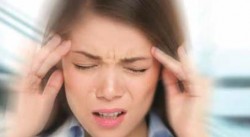Know the unique symptoms and act FAST.
 Take this short quiz to see if you’re “stroke aware.”
Take this short quiz to see if you’re “stroke aware.”
Did you know that every year stroke kills twice as many women as breast cancer?
Did you know that every year 55,000 more women have a stroke than men?
Did you know that women can experience stroke symptoms that men don’t?
Did you know that stroke is the third leading cause of death for women (compared to fifth for men)?
In short, women are more likely to have a stroke, more likely to need long-term care after a stroke and more likely to die from having one too.
Touro Interventional Cardiologist Royce Yount, MD, explains why women are at risk. “Women live longer than men in general,” he says. “With age, women’s blood pressure tends to continually increase, while men’s blood pressures reach a plateau. So their respective risk tends to go up as they age too.”
But even young women have strokes, so identifying risk is a woman’s key to avoiding what can be a life-shattering experience. There is a big push at Touro for stroke prevention in addition to treatment, Dr. Yount says. And as such, he says not to guess or hope, but rather to see a physician who can formulate a personalized plan. “Unless you’re seeing your primary care physician and focusing on preventative care, you may not know all of your risk factors or how well they are controlled.”
The National Stroke Association considers high blood pressure the No. 1 cause of stroke and the most important health factor to control. But Dr. Yount reminds his patients it’s a multi-faceted disease. There is no one risk factor, he says.
Hypertension, heredity, diabetes and high cholesterol all play a role. And smoking? Don’t get him started. “As a cardiologist, knowing that people still smoke in this day and age still amazes me.”
Dr. Yount feels the biggest gap in stroke education is the need to urgently seek care. The brain is an unforgiving organ, he says, so to prevent long-term disability, immediate treatment provides the best outcomes. Within three hours of stroke symptoms presenting, there is a good chance that clot-dissolving drugs will work. At the four-and-a-half-hour mark, benefits are next to nothing and the risk of bleeding in the brain is usually too great for doctors to attempt it.
“It’s amazing how someone can come in with profound deficits shortly after a stroke and with treatment, walk out of the hospital in a few days with a fully functional recovery.”
Yount admits he doesn’t mind striking a little fear into the heart of his patients. When they are diagnosed with heart or carotid disease, he asks them to buckle down on fitness, a healthy weight and a moderate diet to help prevent a stroke.
“Stroke is possibly the most devastating disease a person can experience,” he says. “You can go from someone who is functional and can take care of themselves to someone who has to be taken care of around the clock. A stroke really is a life-changing event that a lot of people can never recover from.”
RISKS: BE AWARE
Women have different stroke risk factors in addition to hypertension, heredity, diabetes and cholesterol:
Smoking
Stop smoking, especially if you experience migraines with aura.
Migraines
Migraines can increase risk 2.5 times. Most migraine sufferers are women.
Birth Control
Screen for high blood pressure prior to starting a birth control regimen.
Pregnancy
Monitor blood pressure during and after pregnancy to lower risk.
Hormone Replacement Therapy
Progestin and estrogen therapy can increase risk.
Age
Get screened for Atrial Fibrillation after age 75.
See your doctor for more information and preventive care.
SYMPTOMS: ACT FAST
Stroke is a sudden loss of blood flow to a part of your brain. Watch for sudden numbness, confusion, vision trouble, loss of balance or severe headache. Not sure you would recognize the signs of a stroke? Remember the acronym FAST:
FACE: Is one side of the face drooping?
ARMS: Does one arm drift downward when raised?
SPEECH: Is speech slurred or strange?
TIME: With any of these signs, call 911 immediately.
Symptoms that can be different for women:
Sudden fainting, weakness, shortness of breath, agitation, hallucination, nausea, seizures and even hiccups.
Nearly 2 million brain cells die each minute a stroke goes untreated, so time is critical. Call 911 at the onset of these symptoms. Treatment for stroke — which includes the delivery of an intravenous clot-busting drug called tPA — is imperative in the first few hours.
Dr. Royce Yount, MD,
Interventional Cardiologist
